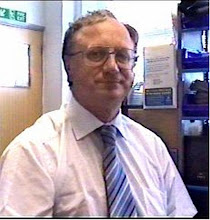The format was so successful that it spawned an international contest “Jeux San Frontieres” (Games without Frontiers), and towns from across Western Europe would take part, host these crazy contests. It was a lot of fun, and sometimes I wonder if it wouldn’t be a good idea to resurrect the concept.
I mention this because it’s clear that there are a lot of companies in the SME market that are now having to deal with cross border relationships; even quite small businesses like ours are able to sell to other countries thanks to the power of the Internet. In our case, we have offices in other countries, and there is a need for our IT staff to support users in those countries as well as in the UK.
This is not easy. I now have an enormous respect for those support people in call centres that provide facilities for multi-language telephone support. Bearing in mind that my French was learned in school some 40 years ago, and was of the “Ou est la plume de ma Tante?” method of teaching, I was quite nervous to have to try and deal with potentially complex technical issues in another language.
Part of the problem is having the confidence to try to speak in another language, particularly if you don’t do this regularly. If you mutter something in an embarrassed way, and the other person then responds with an impatient “Quoi?”, then it’s easy to get nervous and that just makes things harder. However, it’s surprising just how much you can communicate with a relatively small vocabulary and if you speak confidently.
Try this; think of a phrase or sentence at least a couple of dozen words long. Now write out every third word on a piece of paper and give that to someone to read. The chances are that they will still understand what you mean with only the few words selected. There have been numerous studies and this has been proven to work in almost all cases (and not just in English), even when using complex phrases. It’s not necessary to get grammar or syntax absolutely correct, as long as you use the appropriate words. We just had to learn the right phrases, and be able to use them appropriately.
About a year ago, I bought an older server specifically to support a virtual platform. Then I used the Technet site to obtain copies of Operating Systems in the relevant languages we have to support. Although the configuration process and screens will be the same, it’s helpful to know some of the differences in technical names; for example, in French “Computer” is "Ordinateur"
This has helped enormously, and I can confidently tell people on the phone to “Clicquez-vous en Demarrer"
The end result is a better service for the end users. It makes them feel more confident in the support that we provide, and we have had some really good feedback from their staff. It also means that our support staff (i.e. me!) can feel a bit more comfortable when the dreaded “34” country code appears on the CLI of the incoming call.

No comments:
Post a Comment